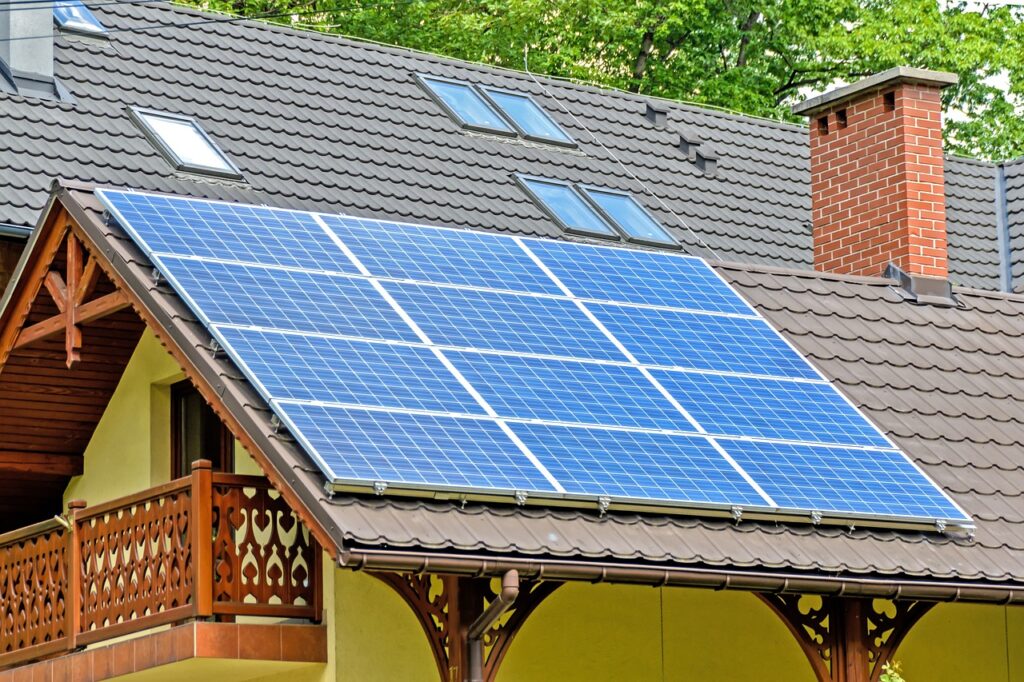As the world increasingly shifts toward renewable energy sources, solar panels have gained popularity among homeowners looking to reduce their carbon footprint and save on energy costs. Solar energy systems can provide numerous benefits, but they aren’t without their challenges. Here’s a deep dive into the advantages of installing solar panels on your home, along with important considerations to keep in mind before making the leap.
The Benefits of Installing Solar Panels
Reduced Energy Bills
One of the most compelling reasons to install solar panels is the potential for significant savings on your energy bills. By generating your own electricity, you can decrease your dependence on the grid, leading to lower monthly expenses. In many cases, homeowners report a reduction of 50% or more in their electricity costs after going solar. Additionally, many states offer net metering, allowing you to sell excess energy back to the grid, further offsetting your costs.
Environmental Impact
Solar panels are a clean and renewable source of energy. By harnessing sunlight, you’re reducing your reliance on fossil fuels, which contribute to greenhouse gas emissions and climate change. Installing solar panels can help decrease your carbon footprint, and many homeowners feel a sense of pride in supporting sustainable energy solutions.
Increased Home Value
Solar panels can increase your property value. Homes with solar installations often sell for more than comparable homes without solar, as buyers recognize the long-term savings on energy costs. Moreover, the growing demand for green homes means that a solar-equipped property can stand out in the real estate market.
Government Incentives
Many governments and local utilities offer incentives for homeowners who install solar panels. Tax credits, rebates, and grants can significantly reduce the upfront cost of solar systems. For example, the federal solar tax credit allows you to deduct a percentage of the installation cost from your federal taxes, making solar energy more financially accessible.
Considerations Before Installing Solar Panels
Upfront Costs
While the long-term savings can be substantial, the initial cost of solar panel installation can be high. Even with tax credits and incentives, many homeowners may face a significant financial investment. It’s essential to evaluate your budget and consider financing options, such as solar loans or leasing, to determine what works best for your financial situation.
Home Suitability
Not all homes are ideal candidates for solar panels. Factors such as roof orientation, shading from trees or buildings, and roof condition can affect the efficiency of a solar energy system. South-facing roofs are generally the best for solar energy production, while roofs with significant shade may not generate enough power to justify installation. It’s crucial to have a professional assessment to determine if your home is suitable for solar.
Maintenance and Longevity
While solar panels are relatively low-maintenance, they do require some upkeep to ensure optimal performance. Cleaning the panels regularly and inspecting them for damage or wear is essential. Additionally, most solar panels come with a warranty of 25 years or more, but you may need to replace the inverter (which converts solar energy into usable electricity) every 5 to 10 years. Consider these factors when evaluating the long-term costs of ownership.
Energy Needs and System Size
Before installing solar panels, it’s essential to assess your household’s energy needs and choose the right system size. A system that’s too small may not provide enough energy to meet your needs, while a system that’s too large can lead to higher upfront costs without a corresponding return on investment. Conduct an energy audit to determine your consumption patterns and find the right balance.
Conclusion
Installing solar panels can be a fantastic investment for homeowners looking to save money, reduce their environmental impact, and increase their property value. The benefits of lower energy bills, government incentives, and a cleaner planet are compelling reasons to consider solar energy. However, it’s crucial to weigh these advantages against the potential challenges, such as upfront costs, home suitability, and ongoing maintenance.
Before making a decision, conduct thorough research, consult with solar professionals, and evaluate your household’s unique circumstances. By taking a thoughtful approach, you can determine whether solar panels are the right choice for your home, ensuring that you make an informed investment in both your property and the environment.

